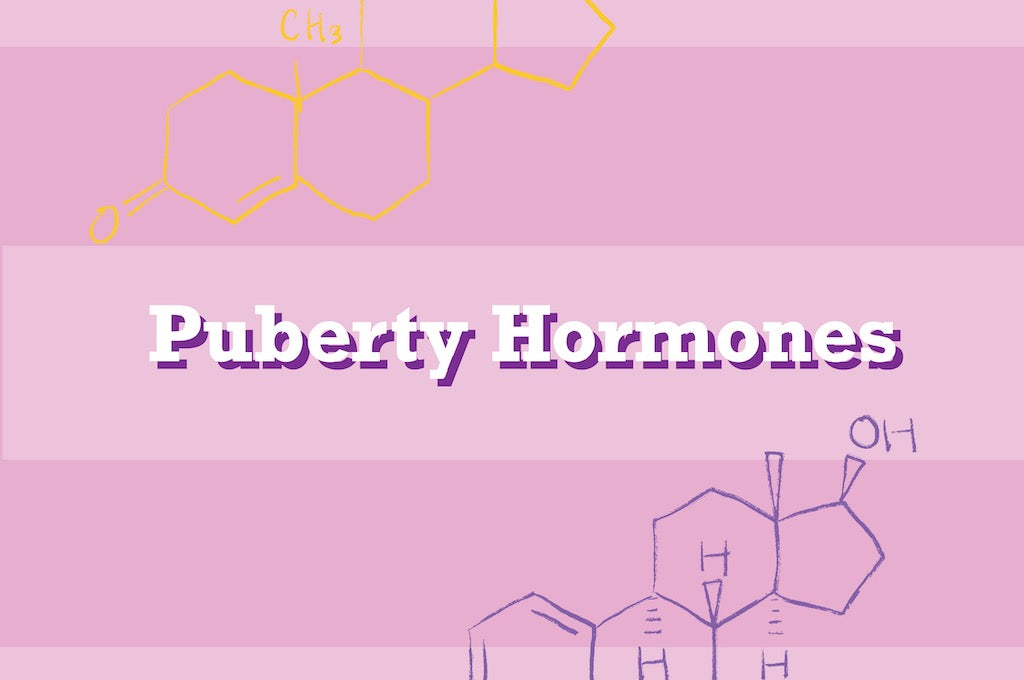When it comes to puberty, the hormones you’ll hear most about are estrogen, progesterone, and testosterone. While estrogen and progesterone dominant female development and testosterone takes charge of male maturation, everyone has at least a little of each one.
Estrogen is the primary hormone driving female puberty. It is made in the ovaries, and responsible for everything from the growth of boobs to the widening of hips. It plays a role in pubic and underarm hair, though the hair situation is largely controlled by a different set of hormones called adrenal androgens. Once a girl begins her period, estrogen and its partner hormone progesterone play a huge role in the cycling of egg maturation, ovulation, and the shedding of the uterine lining (menstruation).
Testosterone is the primary hormone driving male puberty. It is manufactured in the testicles and, among other things, it makes the penis grow, the muscles bulk up, and the voice deepen.
Both estrogen and testosterone affect the skin, contributing to hormonal acne. And even though one is far more important for female development while the other controls male body changes, both genders have both hormones.
Hormones don’t just circulate below the neck - they cycle throughout the entire body, including the brain, which is why they can really impact mood. Estrogen is associated with more outward facing mood swings, everything from laughing to crying during moments that may not warrant the reaction. Many tween and teen girls describe feeling overly sensitive - emotionally, that is - particularly in the days just before their period, an emotional swing may have more to do with fluctuations in estrogen levels than the estrogen itself. Testosterone also causes mood shifts: when guys have surges of this hormone, they often report feeling particularly angry or aggressive. Tween and teen guys also get quiet and retreat from others, a mood that hasn’t yet been tied to testosterone levels but may be in the future.
PS: These hormones play important roles throughout a person’s lifetime - they aren’t just present during puberty. As people get older, the impacts of these hormones shift and change.




Leave a comment
All comments are moderated before being published.
This site is protected by hCaptcha and the hCaptcha Privacy Policy and Terms of Service apply.